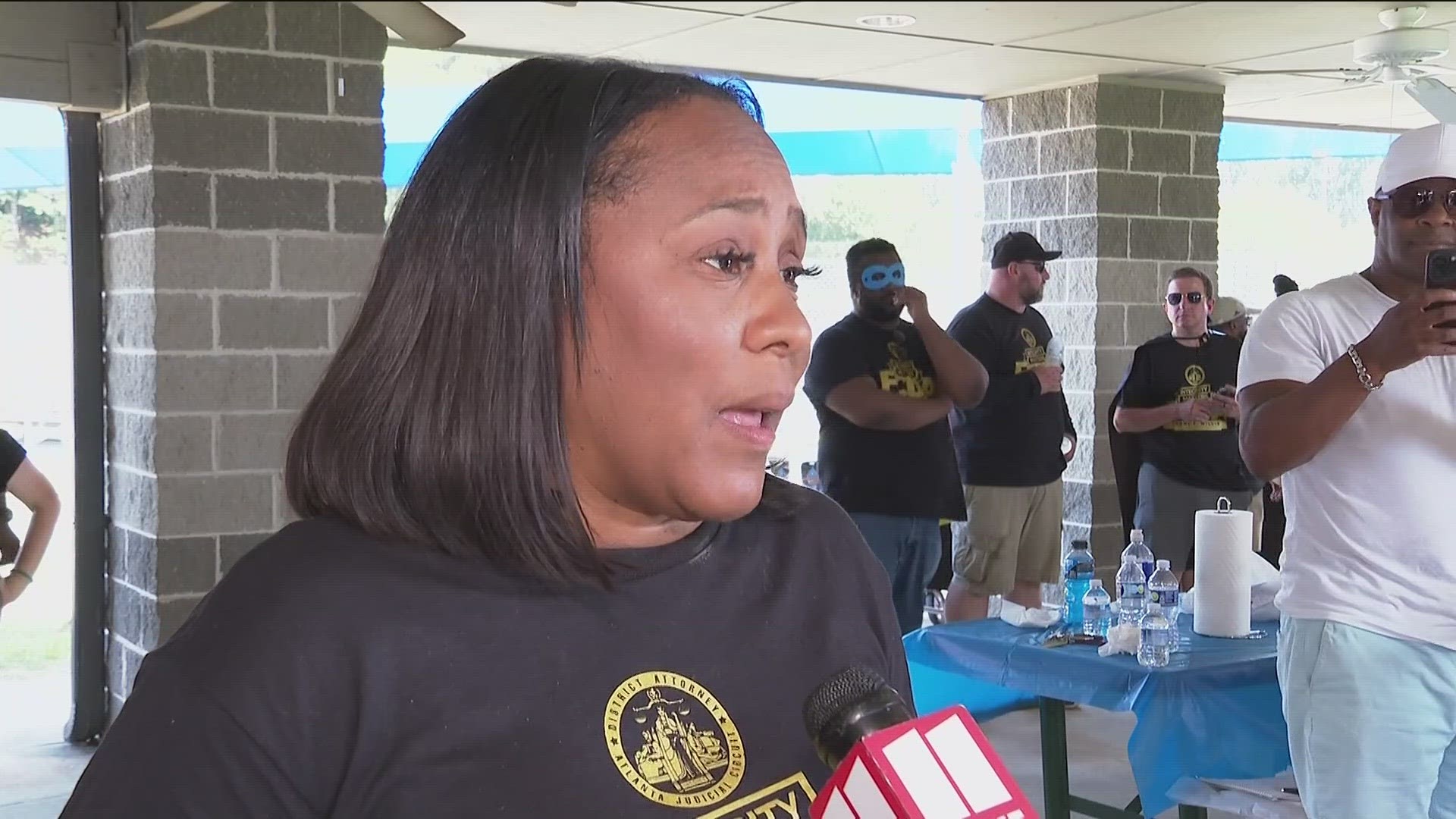ATLANTA — Former President Donald Trump's wide-ranging attempt to prevent a potential indictment and derail Georgia's 2020 election investigation was shot down by an Atlanta judge Monday.
Fulton County Superior Court Judge Robert McBurney denied Trump's motion to disqualify Fulton County District Attorney Fani Willis and bury a special purpose grand jury report into potential election interference.
While much of the report remains sealed, Trump's attorneys argued that no evidence from the document should be used by the district attorney's office or in future proceedings. Cathy Latham, a former chair of the Coffee County Republican Party and a fake Trump elector during the 2020 election, joined Trump's motion after it was initially filed in March.
McBurney ruled that both Trump and Latham lacked standing to mount a legal challenge at the "pre-indictment" phase.
"There will be a time and a forum in which Trump and Latham can raise their concerns about the constitutionality of the special purpose grand jury statutes, about the performance of this particular Special Purpose Grand Jury(and the judge supervising it), and about the propriety of allowing the Fulton County District Attorney to remain involved with whatever criminal prosecution -- if any -- results from the work of this Special Purpose Grand Jury," McBurney wrote. "That time is not now and that forum is not here."
The Fulton County District Attorney's Office declined to comment. Attempts to contact Trump's attorneys -- Drew Findling, Jennifer Little and Marissa Goldberg -- before publication were not returned. This story will be updated once a response is received.
Melissa Redmon, director of the University of Georgia law school's Prosecutorial Justice Program and a former Fulton prosecutor, told 11Alive that McBurney's ruling was expected.
“I think McBurney’s ruling was pretty expected. It was an extraordinary motion asking a judge to not allow the prosecutor to proceed with an indictment," she said. "It’s very difficult to put forth challenges to a case that has not formally begun yet."
The ruling comes four months after the former president made his first attempt to end the probe before potential prosecutions. Over that time, the Georgia Supreme Court has shot down a similar motion from Trump's legal team. It's unclear how Monday's ruling might affect a separate lawsuit Trump filed against McBurney and Willis.
That filing, called a writs of mandamus and prohibition, seeks some of the same items outlined in the March motion. Judge Stephen Schuster of the Superior Court of Georgia set a hearing on that matter for Aug. 10 in a signed order Friday. In Monday's ruling, McBurney said his ruling should render that petition moot.
"In the future, (Trump's attorneys) are encouraged to follow the professional standard of inquiring with chamber's staff about timing and deadlines before burdening other courts with unnecessary and unfounded legal filings," McBurney wrote.
The denial comes as one of two Fulton County grand juries is expected to soon hear evidence against Trump and his allies. Willis previously said potential indictments could come between July 31 and Aug. 18. Willis also requested that judges not schedule trials or in-person hearings from Aug. 7 to Aug. 14.
Trump is expected to appeal Monday's ruling.
"Arguments like those being made prematurely in the pending motions can be more effectively (and reasonably) presented and ruled upon when the full picture of who is being charged with what has been painted," McBurney wrote. "Guessing at what that picture might look like before the investigative dots are connected may be a popular game for the media and blogosphere, but it is not a proper role for the courts and formal legal argumentation."
11Alive's Dalia Perez contributed to this report.

